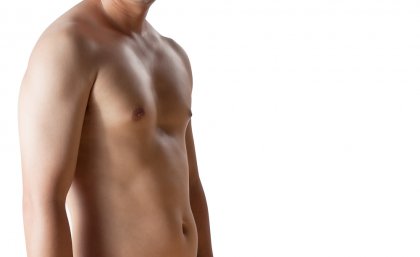
It’s whipped social media into a lather, yet a University of Queensland body-image expert is warning the ‘Dad bod’ craze is probably a load of baloney.
The hashtag #dadbod has been trending solidly for weeks, drawing attention to a supposed trend for women to be attracted to men with unsculpted, but fit, fairly natural bodies.
School of Psychology PhD candidate Andi Alperin says research in fact shows opposite attitudes pervade.
“’Dad bod’ is supposedly this physique that represents people who go to the gym two or three times a week, but still enjoy a few beers and a pizza,” Ms Alperin said.
“However studies show women very much have a predilection towards the stereotypical V-shape and there has been little movement on that front.
“Women are surprisingly more set in their ways than men.”
While Ms Alperin is sceptical of the ‘Dad bod’ phenomenon, she believes there are some positives to come from it.
“There’s not a whole lot of research about what women find attractive – certainly historically – which is sad in itself,” she said.
“Plenty of people abide by the theory that female attraction is based on evolutionary survival instinct and that a big, muscular body offers protection.
“If you were take that line to the supposed ‘Dad bod’ craze, then it might be argued that body shape represents someone who is less likely to leave and will sacrifice their own time for family time.”
Popularly cited purveyors of the ‘Dad bod’ include Russell Crowe, Leonardo di Caprio, Kanye West and Jason Segel.
However since going mainstream the scope of its reference has broadened – excuse the pun – to include everyone from professional rugby players to Prince William.
“In some ways ‘Dad bod’ is just as subjective and unattainable as other popularised notions,” Ms Alperin said.
“How do you care a little about how you look, but not too much? It’s very ambiguous.
“Part of me thinks this has spread so far because people influencing the media want it to be true. It makes them feel better about themselves, which isn’t necessarily a bad thing.”
Media: Ms Andi Alperin a.alperin@uq.edu.au; UQ Communications Robert Burgin +617 3346 3035, +617 448 410 364, r.burgin@uq.edu.au
.jpg)









